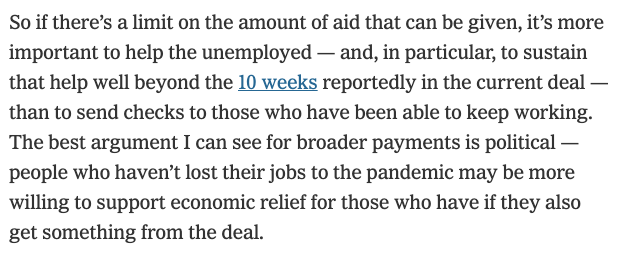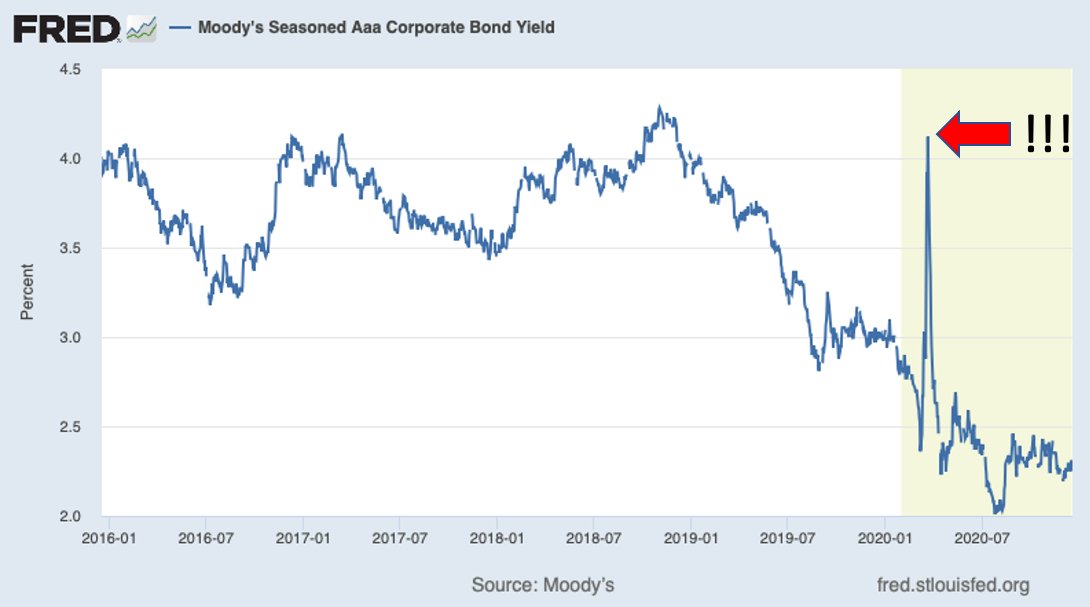
The proposal for $2000 stimulus checks is divisive, and not along simple left-right lines. Lots of disagreement among progressives, with people like Bernie Sanders very pro but many others not on board. Both sides have a point 1/
My take: the economics aren't very good, but the political economy may make such checks necessary 2/ nytimes.com/2020/12/17/opi… 

The key economic argument, which @crampell picks up on, is that given a slump that has affected people very unevenly, aid should concentrate on those actually suffering 3/ washingtonpost.com/opinions/2000-…
So if you have a fixed amount to spend, unemployment benefits and maybe small-business aid should be priorities, not checks that will in many cases go to people who are doing OK 4/
But is there a fixed amount to spend? No binding budget constraint for the feds, so this is all about politics. And my sense is that broad issuance of checks is actually kind of a loss leader, helping to sell a package that includes UI 5/
In a way, the very obtuseness of some politicians makes the case here. I keep seeing assertions from progressives that the US Covid response was stingy — completely overlooking the fact that the unemployed got $2400 a month in supplemental aid 6/
On one side, what?? On the other, this shows that UI tends to be invisible in the political sphere, while the $1200 checks, while far less important in human terms, got all the attention. It's frustrating, but also an indication of how the politics works 7/
So while analysts should try to get politicians to understand the economic realities, I don't think we should campaign against checks for (almost) everyone. They're not great policy, but they may be a necessary part of selling the deal 8/
Yglesias on UI 9/
https://twitter.com/mattyglesias/status/1343898714780397568
• • •
Missing some Tweet in this thread? You can try to
force a refresh





